Recent Posts

15 Common English Collocations with ‘Mind’
The word ‘mind’ appears in so many English expressions. We use it to talk about remembering things, making decisions, describing how we feel, and even connecting with others.
Here are 15 useful collocations with ‘mind’ that will help you sound more natural and fluent in everyday English.

What’s the difference between being lonely and alone?
If you're learning English, you might have come across the words lonely and alone and wondered what the difference is. They sound similar, they’re often used in similar situations, and they both relate to being by yourself. But the truth is, they mean very different things — and understanding that difference can help you express yourself more clearly and naturally in English.
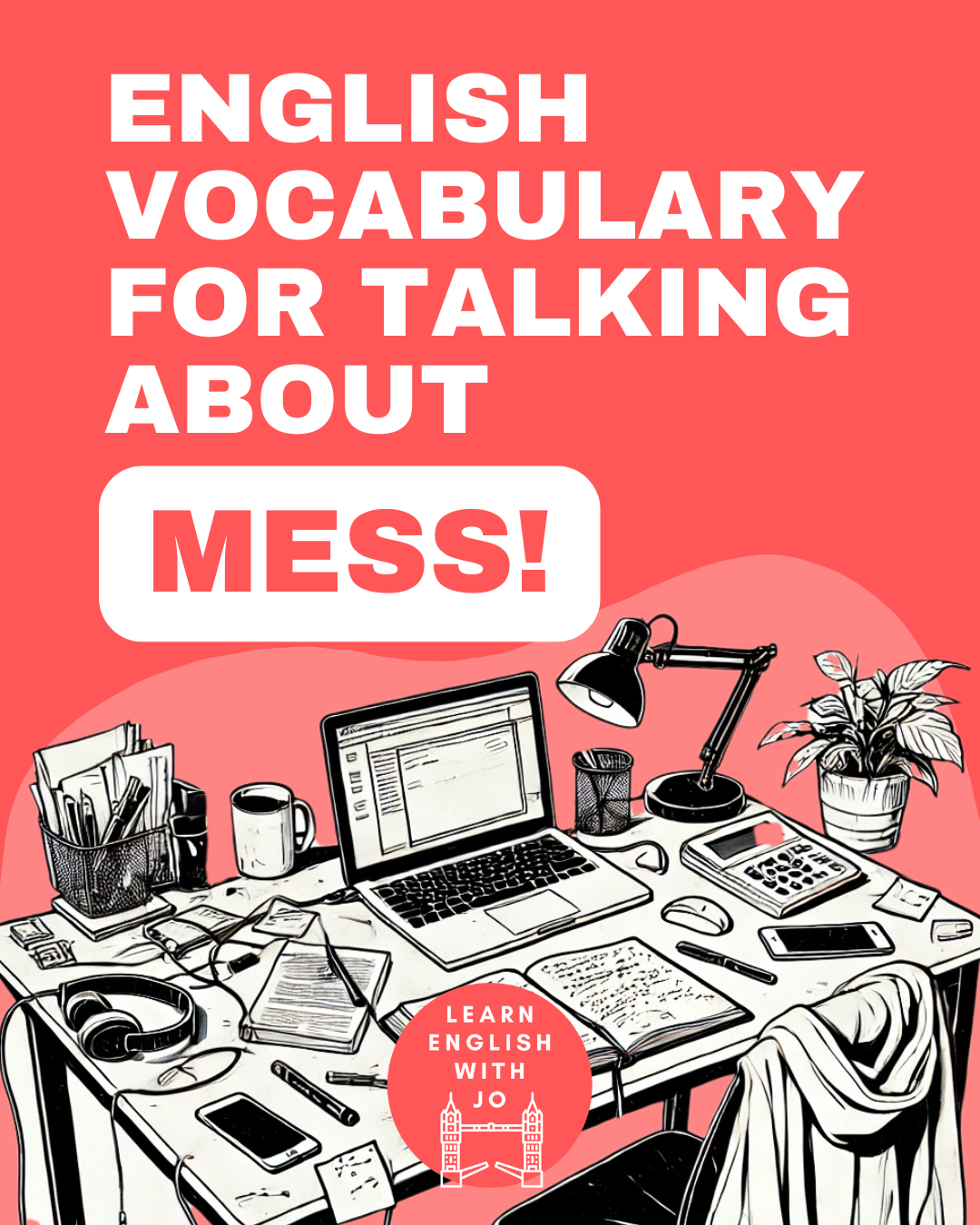
English Vocabulary for Talking About Mess
Let’s be honest — we all have those days when the house is a mess, our to-do lists are chaos, or our brains feel completely scrambled. And sometimes we need just the right word or phrase to describe that mess — especially if we want to sound natural and fluent in English.
This post explores a range of vocabulary to describe untidiness, from gentle and polite to vivid and informal
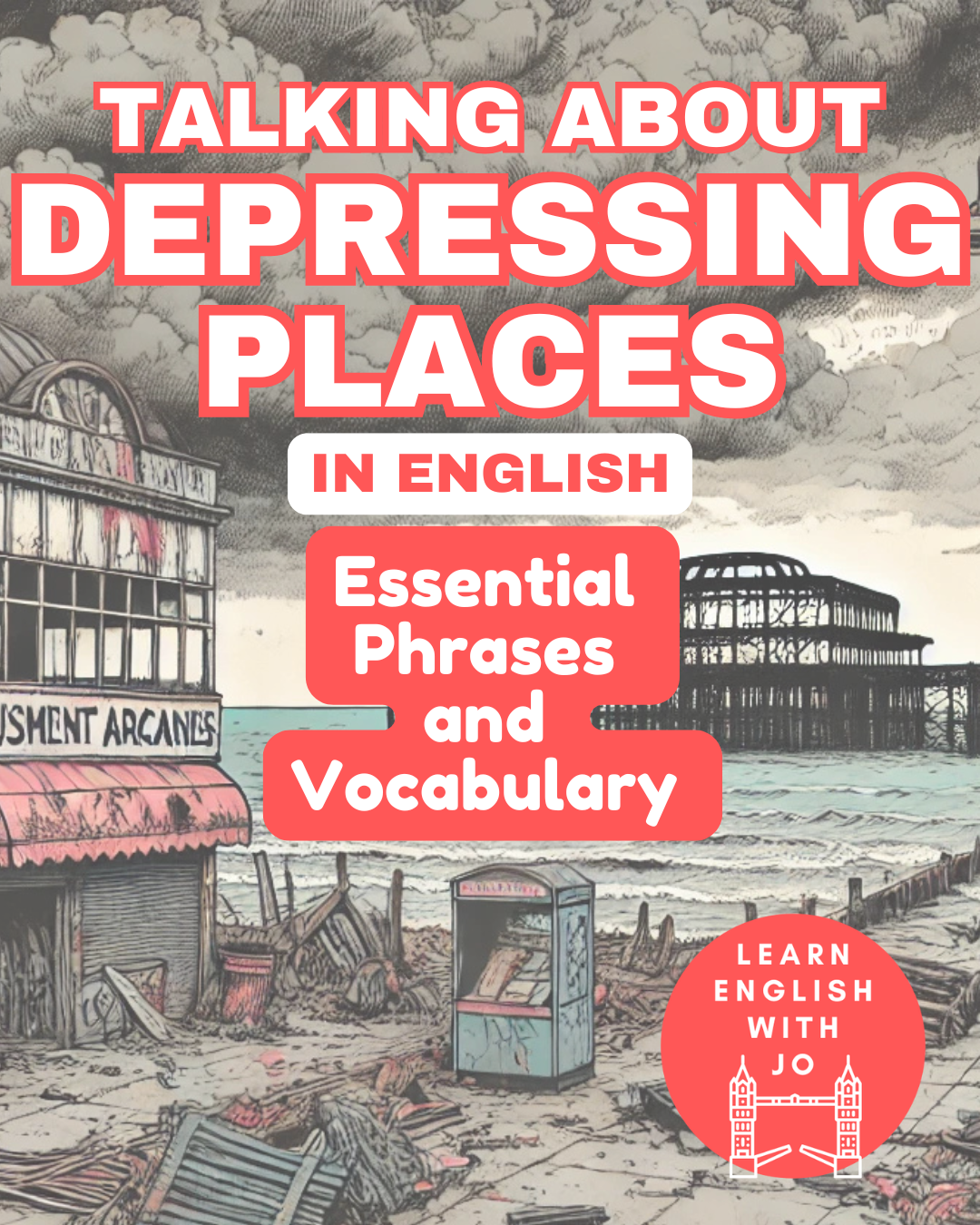
Advanced English Phrases and Vocabulary for Describing Depressing Places.
When learning English, we often focus on language to talk about and to describe beautiful, charming locations and environments.
However, in the real word we also need the vocabulary to talk about slightly less appealing places; you know, the rather more grim or just downright miserable corners of the world.
So today, I’ve come up with some advanced English vocabulary that you can use when describing places that are frankly, a bit depressing.

Advanced English Vocabulary for Talking About Money and Personal Finances
Talking about money and personal finances in English requires a strong grasp of vocabulary to articulate your thoughts clearly and accurately. In this blog post, we’ll explore advanced English adjectives, verbs, nouns, and phrases to help you discuss financial topics with confidence.
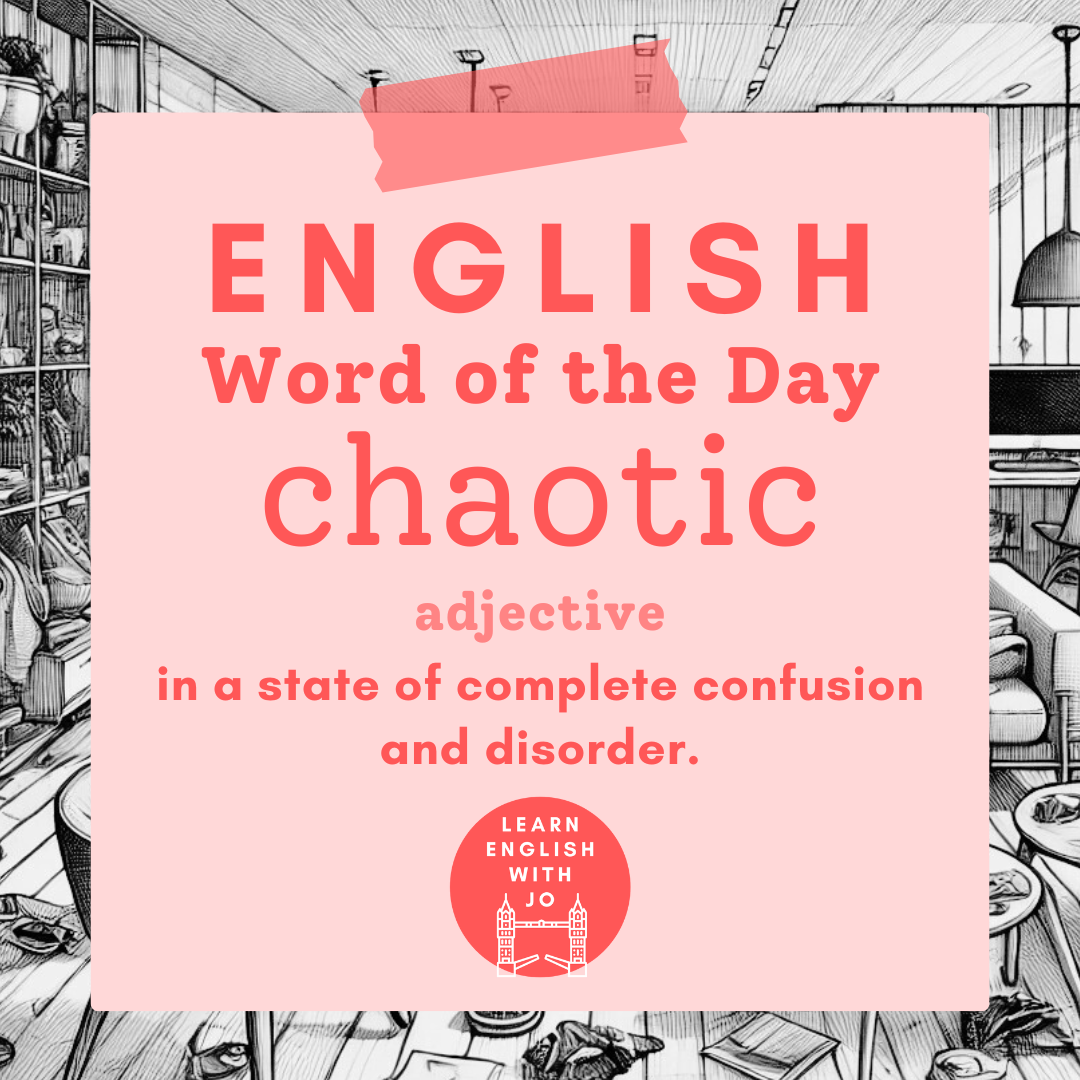
English Word of the Day - Chaotic
Advanced English Vocabulary for Everyday Life- In this blog post, we’ll look at the definition of the English adjective chaotic, explore its synonyms and antonyms, share real-life examples of how to use this word in sentences and offer practical tips to help you talk about those hectic moments that we all encounter. Plus we look at an example of the word from the recent news.

Essential British English vocabulary for living, working or studying in the UK
Sunday English lesson- Watch the video and download your free PDF
Planning on visiting, working, or living in the UK? Navigating everyday British life can be a lot easier with the right phrases and vocabulary. In this blog post, we'll explore 35 essential English phrases that will help you not only survive but thrive in the UK.

Advanced English vocabulary for expressing feelings and emotions.
In this English lesson we're going to explore some advanced English vocabulary for talking about our emotions. This language will help you to express and to articulate your feelings more effectively. From being elated to being absolutely devastated, we'll look at language for life's highs and lows.

Negative adjectives to describe people in English
Think of a dreadful character in a TV show or book. How would you describe them in English? Arrogant? Aggressive? Vindictive? Bigoted?
Describing people in English is a common part of communication, whether you're talking about someone you've met or discussing fictional characters. Today, we'll look at some negative English adjectives and explore their meanings with example sentences.

Learn English vocabulary for talking about exams and tests
Exams and tests: they're inevitable milestones in our academic and professional journeys, often accompanied by a whirlwind of emotions ranging from nervousness to a massive sense of relief. Whether you're preparing for standardised tests like the IELTS, gearing up for university entrance exams, or even facing practical tests like a driving exam, having a grasp of the English language surrounding these assessments is crucial.

English vocabulary and phrases for talking about friendship.
What do your friends mean to you? -Exploring the language we can use to talk about friendship in English
In one of my English conversation classes this week, a student spoke about the importance of her friendships explaining that for her, friendship is not just about sharing laughs and good times; it's about having someone to lean on when things get tough.
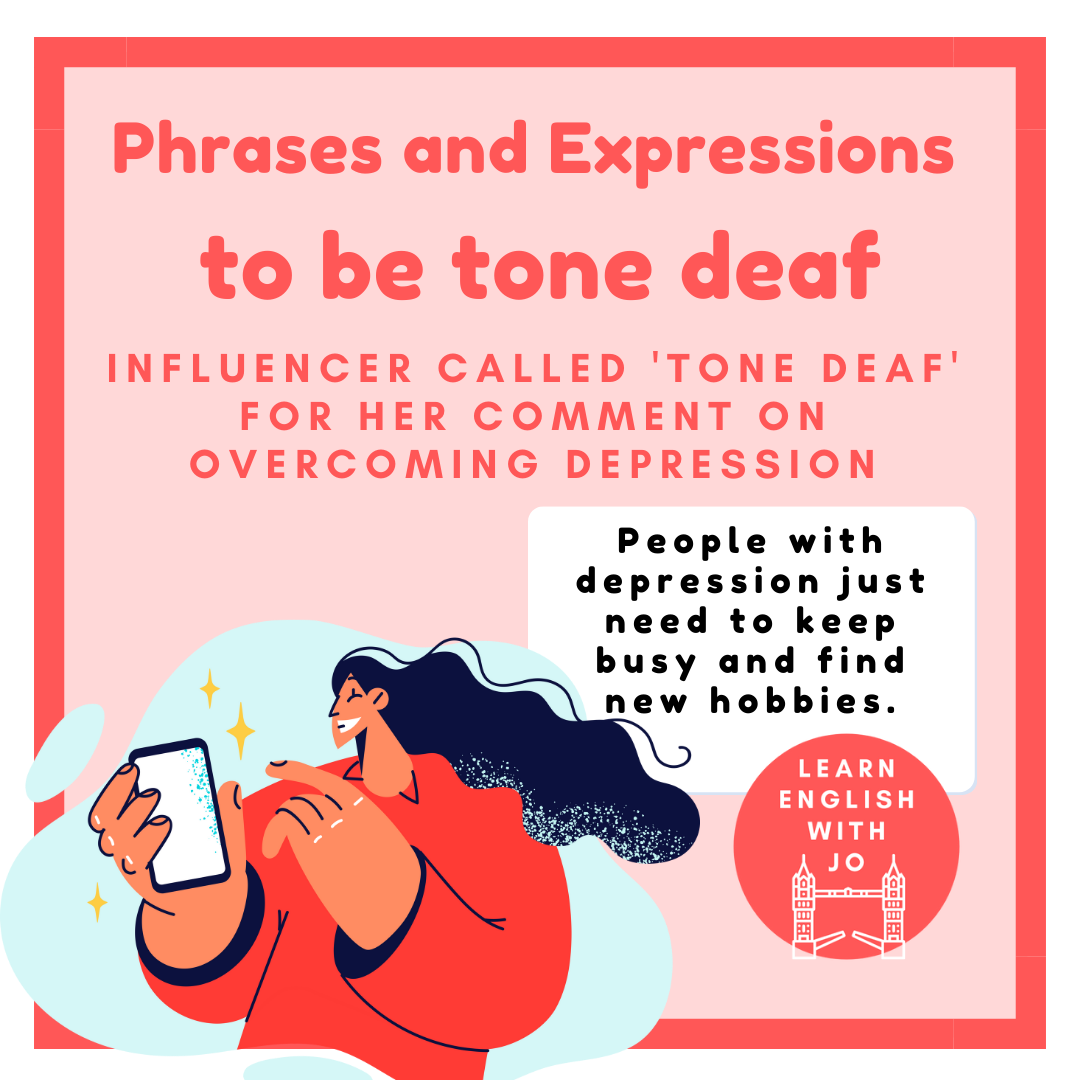
English expressions- what does it mean to be tone-deaf?
Have you ever heard of an individual or organisation being described as tone-deaf? The accusation is probably not referring to their ability to discern musical notes, but rather their social awareness and sensitivity. Describing someone or an entity as ‘tone-deaf’ suggests that they are oblivious or indifferent to the emotions, concerns, or cultural nuances of a situation. It's like they're out of sync with the prevailing sentiment or mood, leading to misunderstandings or even offence.

What is a cliché?
A cliché, in simple terms, is a phrase or expression that has been used so frequently that it has lost some of its original impact. These phrases have become so ingrained in our language that they often evoke a sense of familiarity. While some may view clichés as overused and lacking creativity, they still hold a special place in our communication toolbox.

Vocabulary for describing the qualities of a good friend in English.
In English, there are many ways to talk about friendship, using a variety of vocabulary, idioms, and phrases. In this blog post, we will focus on the vocabulary that you can use to describe the qualities a good friend.

English word of the week - mundane.
The English word "mundane" is an adjective that refers to something that is ordinary, everyday and not very interesting. It is often used to describe things that are dull, tedious, or unexciting.
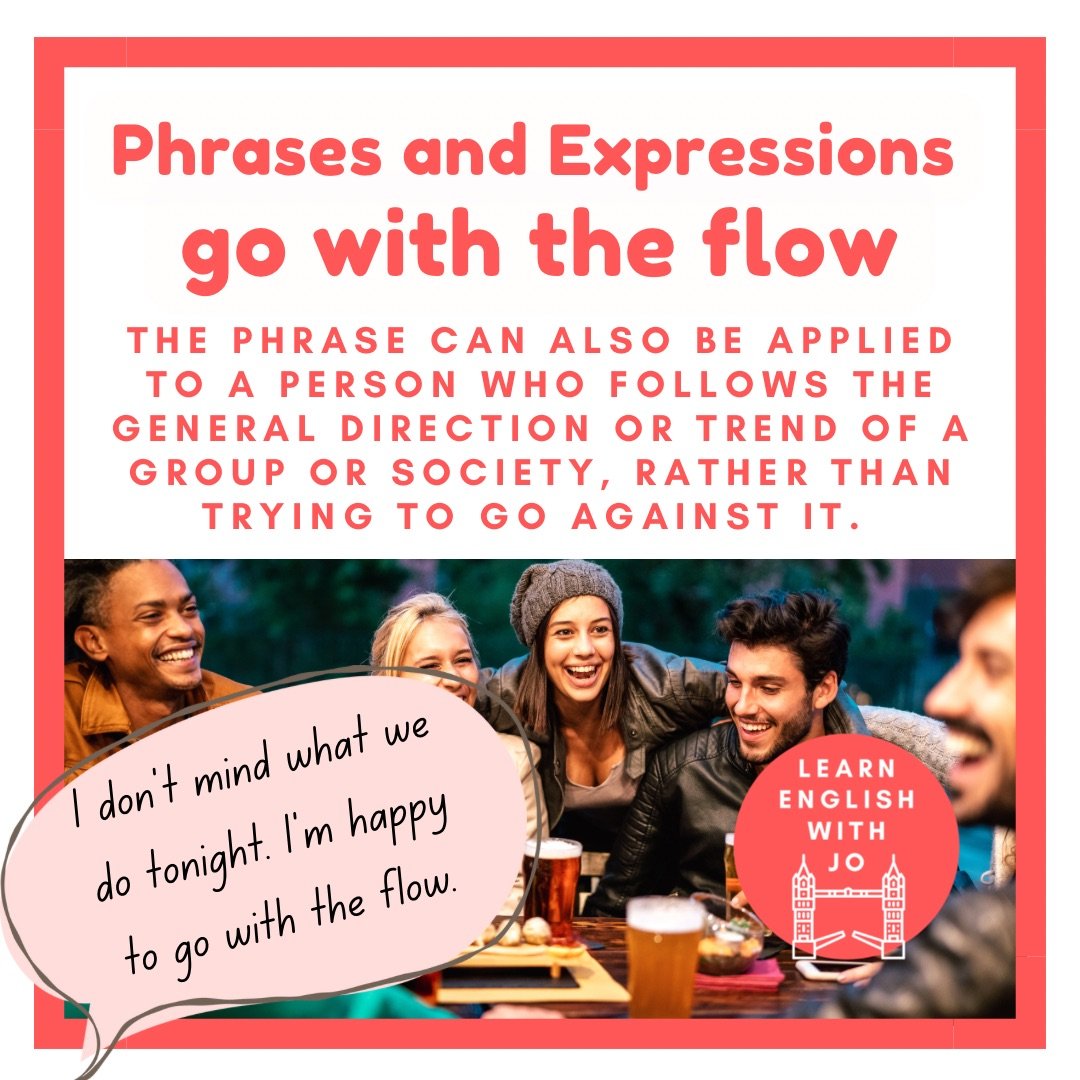
English phrases and expressions - go with the flow
The English phrase ‘to go with the flow’ has become a staple in everyday conversation, but have you ever stopped to think about what it actually means? In this blog post, we will explore the meaning and usage of this popular English expression.

English Phrases and Expressions - To put someone on the spot
The English idiomatic expression ‘to put someone on the spot’ means to put someone in an uncomfortable or difficult situation by putting them under sudden pressure to respond, answer, or make a decision. It often creates discomfort, awkwardness or embarrassment for the person being put on the spot.

Best of British Slang - To go off on one.
"To go off on one" is an idiomatic phrase that means to suddenly become angry or agitated about something. This phrase is usually used in informal situations and when someone is loudly and strongly expressing their anger or frustration about something.

Word of the week- Empathy
In today’s post I’m focusing on my English word of the week, empathy. Are you an empathic person? Continue reading to discover the difference between empathy and sympathy and to find out about Empathy Museum.
